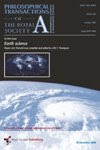As in "Omit the emissions euphemism" title of
a recent Tim Jarvis' blog-note.
When I read the above referenced post by Tim Jarvis, I was struck by the pertinence of his comments and arguments and shared many of his intuitions gleaned from various reports widely resourced. I felt compelled to draw web-log readers to Tim's work and approaches.
“The first step to addressing the problem of climate change is to use the correct language - pollution, not emissions. The term pollution is logically correct. Moreover, using it immediately shows up some otherwise well-meaning solutions as false, and it prepares the ground for what is really needed: a regulated cap on acceptable levels of pollution.”
where Tim Jervis highlights some major discrepancies in common day language and thought.
“Accepting this word pollution is the first step towards averting long-term climatic disaster. It clarifies the problem and even helps to immediately assess the relative merit of some candidate solutions.Would you like a personal CO2 pollution credit, as advocated by the Royal Society of Arts and echoed by the UK government's David Miliband? No. I don't want personal pollution credits for mercury, lead, CFC or SO2 either. I certainly don't want personal pollution credit cards filling up my wallet.”
“As people in business, we must clean up the pollution for our consumers and pass on our costs through the economy. There is only one great technological fix available at present - the capability to modify power stations to capture the CO2 they produce. Otherwise, the options are limited and unsatisfactory.” [since carbon trade started most countries offered free credits to their major companies – not exactly educational or responsible governance! Refs TBD, all in the name of global competition!]
I have reached similar conclusions, "independently", in a recent literature review which I call synergy-system4: whose focus is on CO2 reduction, based on three pillars of the Institute of Materaial,Minerals & Mines [UK] 1 mines (coal) 2. energy- power plan(coal combustion) 3. metallurgy & materials, as yet unpublished in final form.
He concludes:
“Call CO2 pollution what it is, then regulate it to cap it. Regulate it at source (and at the border of your country if it is not regulated in the country of origin.) Regulate to manage the absolute amount in the atmosphere. This means caps are more important than trades. You don't reduce the number of slaves just by creating an international slave trade. Concentrate on the cap, then the mechanism.”
All My Pages
Where my visitors are
A380's TRENT XWB
Materials Science and Engineering, Durable Development, Recycling..

Custom Search
Blog List-Free Science and Engineering Information Resources cf also Side and Bottom menu bars
-
-
Research Headlines - Motoarele cu ardere internă au un viitor luminos datorită aprinderii cu laser - [image: Image]Până să devină practice și tuturor accesibile mașinile electrice și alte inovații energetice, va mai fi larg folosit motorul cu ardere, rezul...4 years ago
-
Research Headlines - Inteligentne miasta zorientowane na obywateli - [image: Image]Dzięki technologiom IT usługi miejskie mogą być bardziej wydajne, dostępne i przyjazne dla środowiska. By takie rozwiązania były efektywne, m...4 years ago
-
Research Headlines - En route to safer, more reliable autonomous driving - [image: Image]The development of autonomous driving systems is currently a focus of research for the automotive industry. An EU-funded project has moved wo...5 years ago
-
Instant Inflation Systems for Stand-Up Paddle Boards - Inflatable Stand-Up Paddles (SUP) have provided great flexibility to enthusiasts and allowed the sport to grow in popularity. However, manually or electr...7 years ago
-
The List of Online and Free Access Journals about Metallurgy , Mining - The List of Online and Free Access Journals about Metallurgy and Mining RKOJ = Related Keywords of the Journal Open Mineral Processing Journal RKOJ: ...16 years ago
-
-
Scientific Reports - nature.com science feeds
Physical sciences : nature.com subject feeds
Materials science : nature.com subject feeds
Friday, 21 March 2008
Subscribe to:
Post Comments (Atom)






















No comments:
Post a Comment